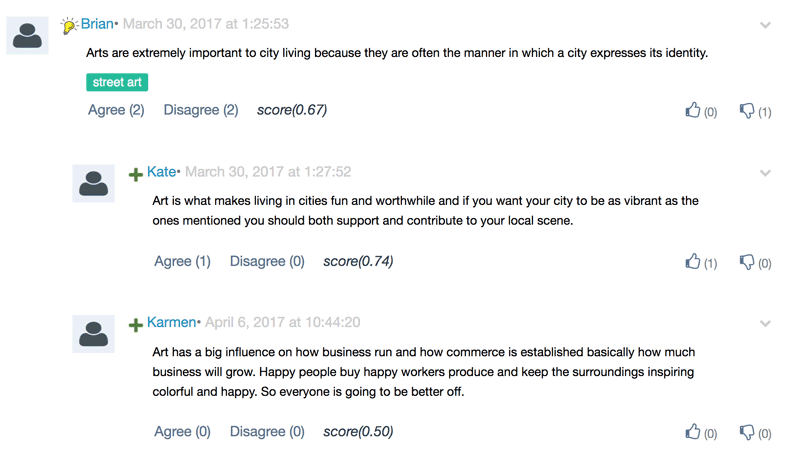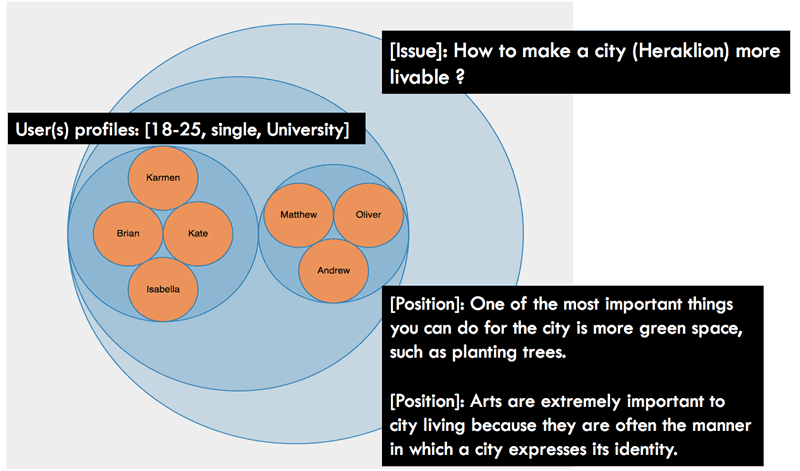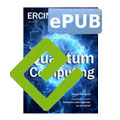by Elisjana Ymeralli, Theodore Patkos and Yannis Roussakis (ICS-FORTH)
APOPSIS is a web-based platform that aims to motivate online users to participate in well-structured dialogues by raising issues and posting ideas or comments, related to goal-oriented topics of discussion. The primary goal of the system is to offer automated opinion analysis features that help identify useful patterns of relations amongst participants and their expressed opinions. Our system is designed to enable more structured and less confusing argumentative discussions, thus helping sense-makers in understanding the dynamic flow of the dialogue.
Web-based platform APOPSIS can be used in everyday deliberation, as well as decision-making discussions, where users exchange their viewpoints and argue over a plethora of topics. The platform offers well-structured dialogues which can take place in different phases of discussions. As a debating platform, APOPSIS offers the opportunity for a variety of groups to work and collaborate with each other by sharing their ideas in support of or against other opinions. Each dialogue is open for users to defend and justify their statements and vote upon them, respectively. The first phase of the dialogue allows users to participate by providing solutions or statements, in addition to their justified agreements or disagreements, while in the second phase, only the most popular or well-justified solutions remain and become subject to more detailed evaluation by the participants.
Conversations are presented in a tree-like style, where subsequent levels of comments respond to the parent comment. The system supports several features that enrich the system’s usability, such as voting, semantic annotation, aspect-based rating and searching functionalities. These features enable APOPSIS to produce and extract useful conclusions that can help sense-makers and expert users to understand and make decisions on specific problems and issues.
In order to interpret and analyse user reactions, such as comments, votes and ratings, the system uses methods from the fields of computational argumentation and machine learning (ML) that enable the structuring and evaluation of the differing opinions expressed in dialogues. Specifically, an argumentation-based approach that has its roots in the IBIS-style argumentation model [1], but with slightly different semantics, is designed to structure the argumentation process [2] and organise the different conceptual components of the dialogue. In order to be able to accommodate (store and retrieve) all these complicated opinions, a formal semantic web ontology, called MACE (Multi Aspect Comment Evaluation), was designed, which can semantically represent the content produced and exchanged within the platform for online communities. Moreover, the system uses the s-mDiCE (symmetric multi-Dimensional Comment Evaluation) argumentation framework [3], for evaluating online discussions and identifying the strongest and most acceptable opinions found in online debates, based on different metrics. The underlying quantitative algorithms are generic enough to capture the features of online communities on the social web and may benefit several platforms, from debate portals to decision-making systems.

Figure 1: A part of City Planning dialogue.

Figure 2: An automated Opinions Analysis.
A key feature of APOPSIS is the support for automated opinion analysis for analysing user behaviour in online communities. Opinion analysis aims at identifying different groups of users and useful patterns of relationship between participants and opinions, in order to help users to make better sense of the dialogue and the opinion exchange process. Based on user reactions, the system applies ML algorithms for the clustering of features and the extraction of association rules.
The basic ML algorithms used in this platform are:
- Expectation-Maximisation algorithm (EM): Decides the optimal number of clusters.
- K-means algorithm: Identifies different groups of users and opinions.
- Apriori algorithm: Determines interesting and useful relationships among attributes.
Our methodology implements five different information needs emerging from users throughout the sense-making process:
- Same profiles with similar opinions: Identifies different user profiles that share similar opinions on specific positions.
- Sharing similar opinions with specific user: Extracts different groups of users whose opinions are closely related to specific user(s).
- Same users with similar preferences: Determines groups of users who share both similar opinions and profile characteristics.
- Similar opinions based on different profiles: Identifies similar opinions expressed by users with different profile characteristics.
- Different user profiles with similar/dissimilar opinions: Finds different groups of user profiles who share similar or dissimilar opinions.
There are several avenues that are worthy of further investigation, with an emphasis on improving the system’s usability. Thorough evaluations with real users and large datasets of discussions will be carried out, including expert walk-through evaluation of the platform and adjustments based on user expert feedback.
Links:
[L1] www.ics.forth.gr/isl/apopsis
[L2] http://www.ics.forth.gr/isl/mace/mace.rdfs
[L3] http://www.ics.forth.gr/isl/mace/MACE%20Ontology_Scope_Notes.pdf
References:
[1] J. Conklin, M.L. Begeman: “gIBIS: A hypertext tool for team design deliberation”, Proc. of the ACM conference on Hypertext, ACM, 1987.
[2] J.Schneider, T.Groza, and A.Passant: “A review of argumentation for the social semantic web”, Semantic Web 4.2 (2013)
[3] T.Patkos, G.Flouris, and A.Bikakis: “Symmetric Multi-Aspect Evaluation of Comments”, ECAI 2016-22nd European Conference on Artificial Intelligence, 2016.
Please contact:
Elisjana Ymeralli, FORTH, Greece











